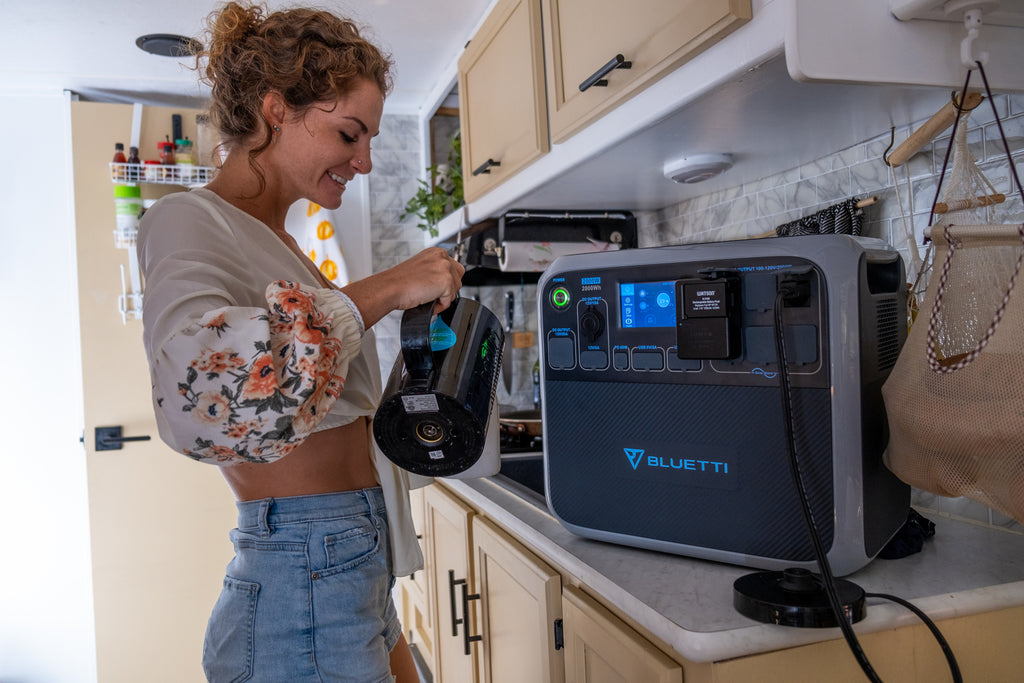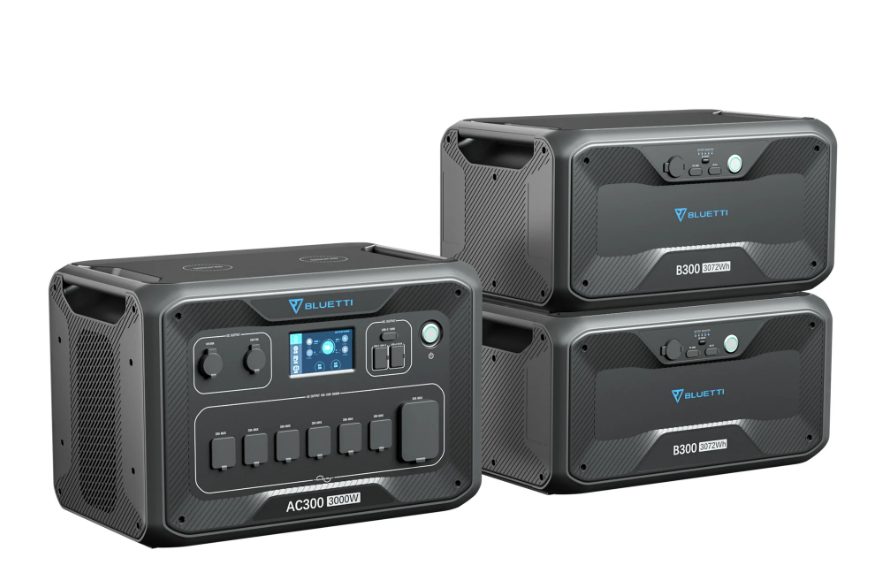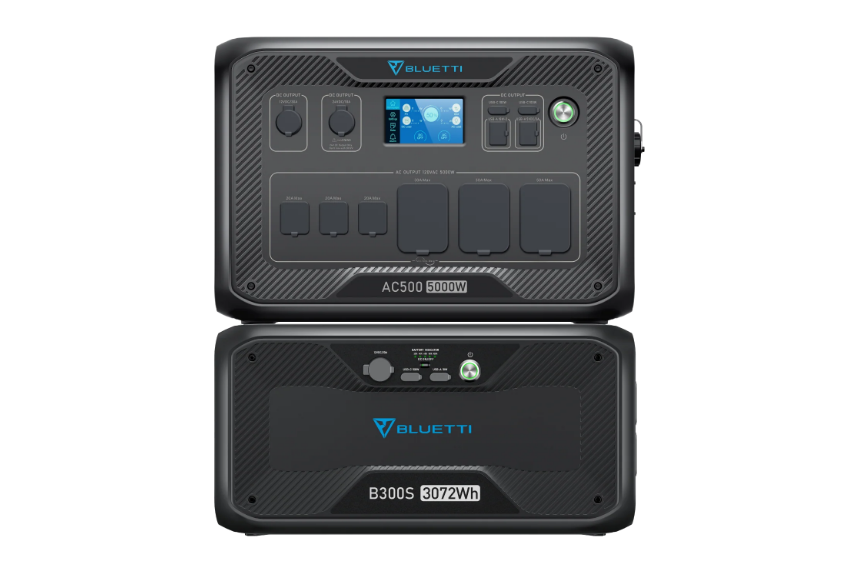Sustainable living reduces energy consumption helping reduce your carbon footprint. And one way to go about it is to install a whole house solar generator. They are eco-friendly, quiet, and compact. But can they power your entire house? Let’s find out.
Can a Solar Generator Power a Whole House?

Yes, a solar generator can power your entire house. That said, it depends on factors such as energy consumption, house size, and the size of the generator. Generally, whole house solar generators are equipped to produce ample energy to power all appliances in your house.
For example, a 2000-watt generator will adequately power the whole house with ease. The location of your house can also affect the power output of the solar generator. As you know, solar products are dependent on the amount of sunlight. So, when choosing a generator for your house, consider this aspect.
A typical solar generator will consist of solar panels, solar batteries, an inverter, and other systems to bolster its efficiency. And the amount of power it can capture will depend on the efficiency, rated power, and installed PV panels.
Depending on the number of appliances you’ll be running, you might need to supplement your solar generator with another source of power such as the grid. Alternatively, you can use a backup generator.
So, can a solar generator power your house? Yes, in fact, large BLUETTI solar generators are the most ideal since they are high-capacity generators.
What Size Solar Generator Do You Need to Run a House?
You’ll need to consider the energy consumption of your household when choosing the size of a solar generator. While a typical American household consumes at least 30 kilowatt-hours of electricity daily, you should calculate your individual consumption rate.

Calculate Your Average Power Consumption
One of the best ways to estimate the size of solar generator you need is to calculate the average power consumption. Fortunately, you can get this information from your monthly electricity bill.
Since electricity consumption varies from month to month, you can use an average of 6 months to calculate a more accurate average. However, if your focus is provision of power during blackouts only, you might not need to calculate your average energy consumption.
Determine Wattage Requirements
To get the right size of solar generator, you’ll need to calculate the wattage requirements of your appliances.
Small appliances will only have a running wattage requirement. Larger appliances will have starting and running wattage ratings. The ratings are labeled on the appliances. Here are wattage requirements of the most common appliances.
|
Appliance |
Running (Rated) Watts |
Starting Watts |
|
Washing machine |
1200 |
2300 |
|
Refrigerator |
700 |
2200 |
|
Microwave |
1000 |
0 |
|
Dishwasher |
1300 |
1800 |
|
TV |
500 |
0 |
|
Laptop |
50-300 |
0 |
|
Light bulb |
40-75 |
0 |
If the power rating is in volts or amps, you can convert it into wattage using the following formula:
Volts (V) x Amps (A) = Watts (W)
Now, you can add all the running wattage of the appliances the generator will be running. Is the total less than the rated wattage of the solar generator? If so, that’s an ideal option. Otherwise, you’ll need to buy one with a higher rated wattage.
You should also consider the appliance with the highest starting wattage. Pick the highest starting wattage and add it to the total running wattage. You now have the total starting watts you need from your generator.
Ensure the starting wattage of the generator is higher than that of the appliances to avoid overloading it.
With this info you can now determine the inverter size, battery capacity, and the number of solar panels you’ll need.
Ideally, the inverter should be at least 120% than the total wattage requirements. For example, to run a household with a 4000W rating, you’ll need a 4600W inverter.
The capacity of the solar batteries should be twice your energy consumption. If your total consumption is 5000W per day, you’ll need batteries with a total capacity of 10000Wh.
Finally, to determine the number of solar panels, you’ll need to factor in the panel capacity, storage capacity of your batteries, and the number of peak sun hours.
You’ll need to divide the battery’s storage capacity by the product of peak sun suns and panel capacity.
So, if you have a battery with a capacity of 10000 Wh, 5 peak sun hours, and 400W, you’ll need 5 solar panels.
Related articles: Can a BLUETTI Solar Generator Power a House?
What Size Generator to Run a 2000 Sq Ft House?
How to Choose the Best Whole House Solar Generator?
Now that you know how to calculate the size of a solar generator, how then do you choose the most ideal for your needs? Let’s find out.
Battery lifespan
The lifespan of a solar generator is among the most important aspects you should consider. You don’t want to buy one that will last a few years. This means you need one with a longer battery lifespan. And the best option are those that are equipped with LiFePO4 batteries. They can last for 10 years while offering excellent storage capacity.
Cost
While you should buy a solar generator within your budget, you should not always go for cheaper options. Most are knock offs with inferior or no safety features. If possible, buy a whole house solar generator priced from $5000.
Not only are they of high quality but also come with much-needed features and warranties. For the best value for your money, you might consider buying from brands such as BLUETTI.
Type Of Inverter
You should also consider the type of inverter. The best option is the Pure Sine Wave (PSW) inverter that is compatible with all household appliances. Besides, they have a high output.
Recharging Options
You want to buy a solar generator that has different ways of recharging it simultaneously. Ideally, you should opt for one with two or methods. This reduces the recharging time and allows you to use different power sources. Take, for example, the BLUETTI AC200MAX that can recharge using solar, AC, and lead acid batteries.
Scalability
Besides its capacity, you’ll need a generator that is expandable. Energy needs change and your generator should accommodate these changes. Choose one that is compatible with expandable batteries. Most BLUETTI solar generators allow you to expand their capacity using extra batteries.
3 Best Whole House Solar Generator
Here are three whole house solar generators you can buy today.
BLUETTI AC200MAX + 2*B230

If your energy needs are not as vast as many households, you can opt for the BLUETTI AC200MAX+2*B230 KIT. The workhorse has a maximum capacity of 6,144Wh ideal for everyday electricity applications. You also get a 2,200W Pure Sine Wave inverter that is ideal for all appliances.
With a 4,800W surge rating, you can rest assured it can run your heating system, refrigerator, and washing machine with ease. The 7 ways to recharge it reduces the recharging time significantly while offering multiple options.
And with a smart control app, you can monitor and adjust settings with ease.
BLUETTI AC300 + 2*B300

Another ideal whole house solar generator kit is the BLUETTI AC300 + 2*B300. This option has a 3,000W AC Pure Sine Wave inverter ideal for running most appliances. It also has a 6,000W surge rating, running large appliances with ease. And thanks to the LiFePO4 battery, it can last for 10 years.
The AC300 generator’s capacity can be expanded to 12,288Wh by adding 4 B300 batteries. You can recharge it using AC, solar, lead-acid battery, and a generator. With a compact and lightweight design, you can install it in tight spaces.
BLUETTI AC500 + B300S

The BLUETTI AC500 has a 5,000W rated wattage and 10,000W surge wattage. This makes it an ideal option for households with large appliances. And with a capacity of 3,072Wh, you can rest assured it will provide ample energy to power all your appliances. Like other premium solar generators, it is equipped with a 5000W Pure Sine Wave inverter.
The best part is that you can expand its capacity to 18,432Wh, meaning it accommodates most of your future energy needs. Recharging it is straightforward since you get six options: AC, car cigarette lighter, Lead-acid, solar, and generator charging.
Not only can you use it for whole house needs but also outdoor activities such as camping, hiking, and related events.
Can I Save Money by Using a Solar Generator?
Yes, installing a solar generator will save you money in the long run. While purchasing the equipment and installation might be expensive, savings from reduced electricity bills will add up in the long run.
Besides, solar is becoming more affordable. The federal government offers tax credits to homeowners that install solar systems further reducing the cost of installation. There are manufacturers that provide financing options, making installing a solar generator an ideal option.
Final Thoughts
A solar generator can power the whole house with ease if you choose one that meets your energy needs. So, consider power consumption, wattage requirements, and the generator’s capacity when buying a whole house solar generator. For the best value for your money, consider buying models from BLUETTI.







































































